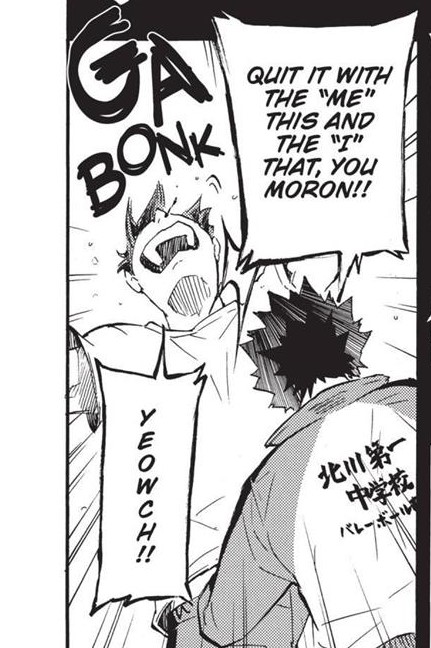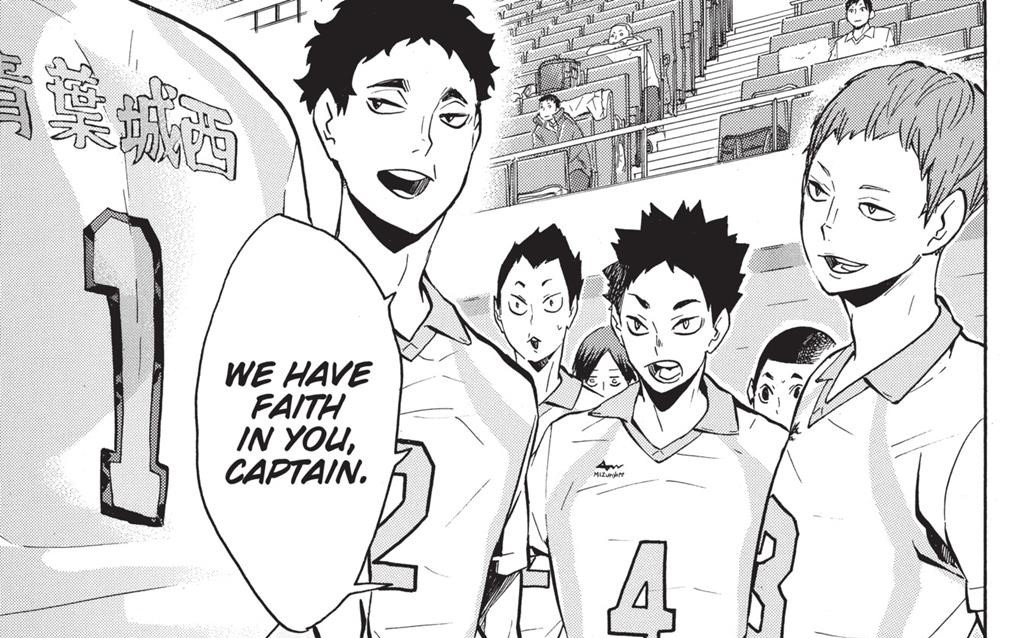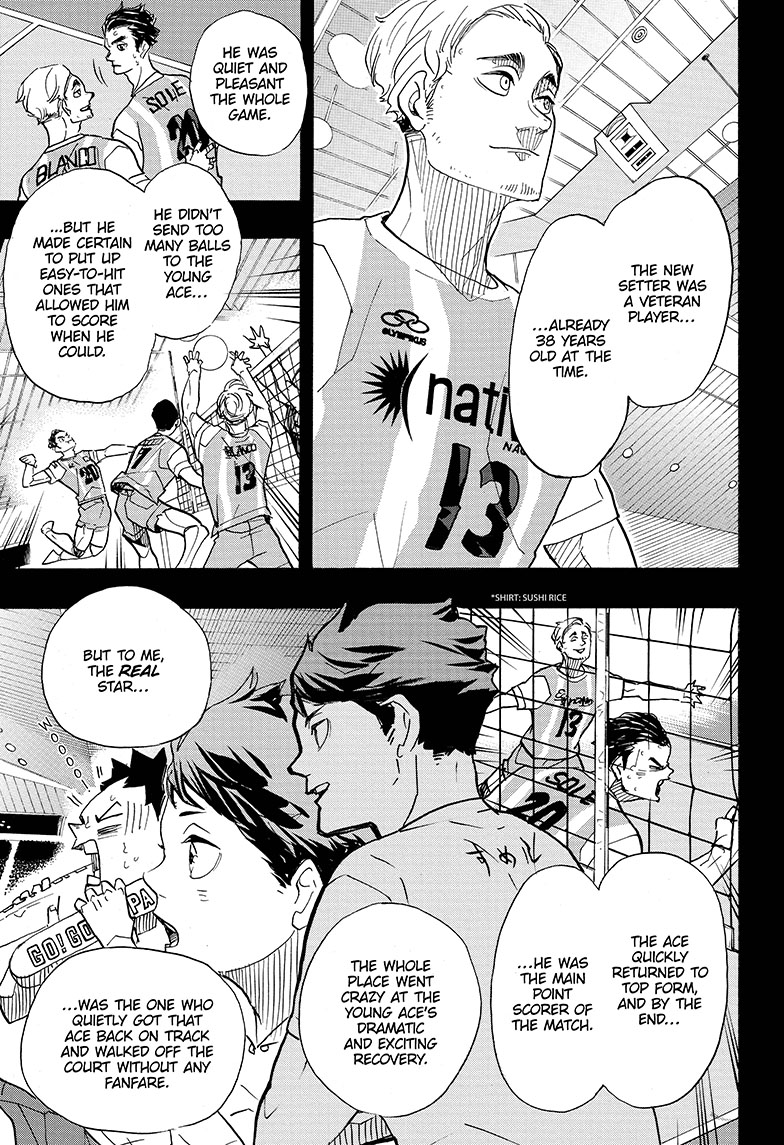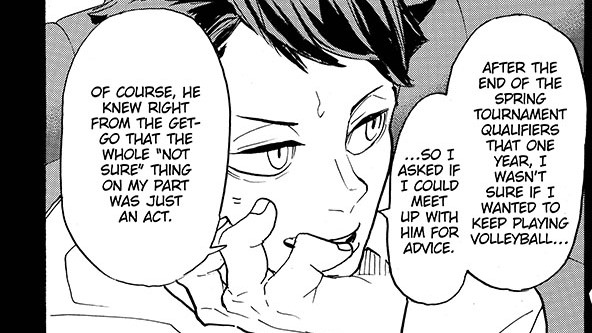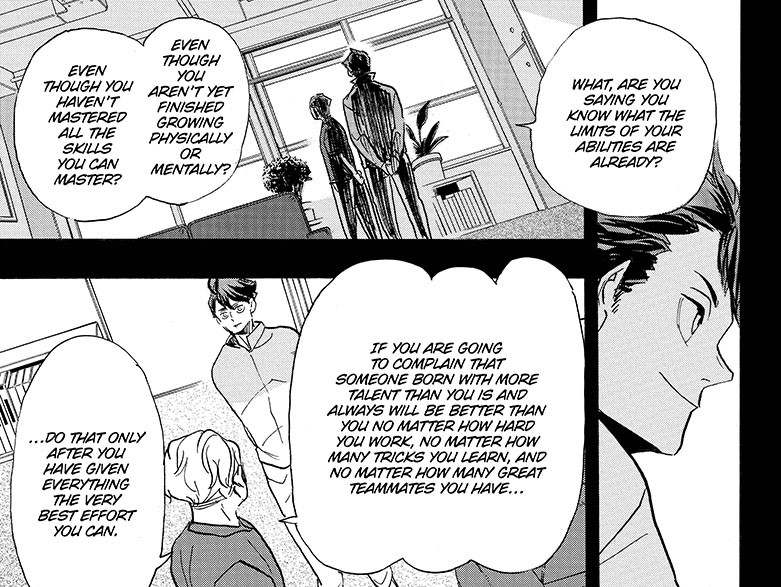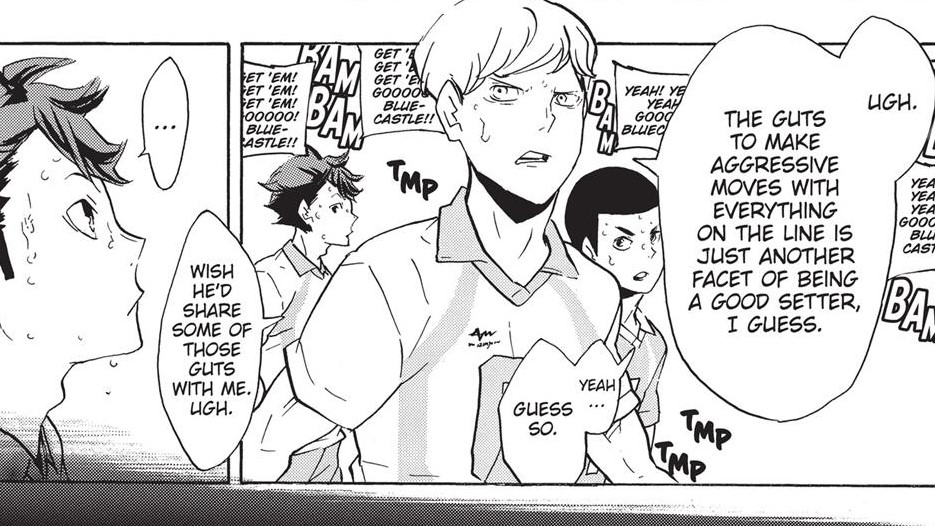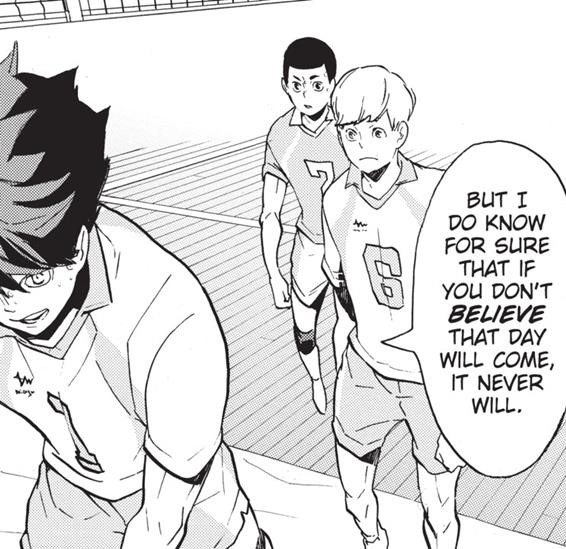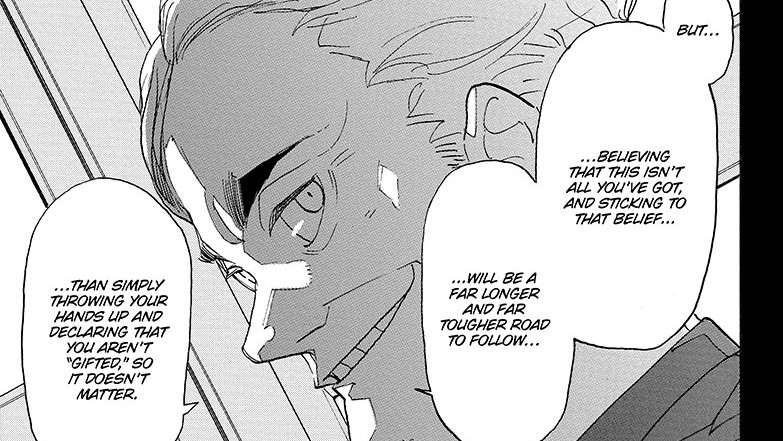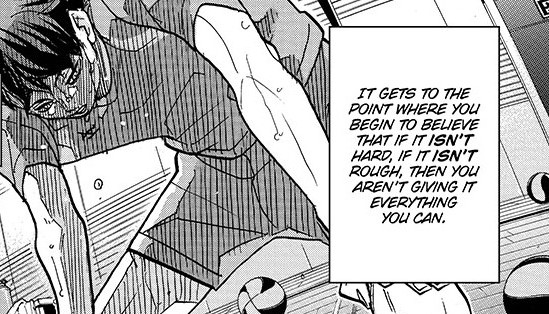and here it is. my adoration for oikawa tooru, painstakingly transformed into text.
(or: a very, VERY, long thread for the love of my life, in celebration of his birthday)
#及川徹生誕祭2020
#及川徹誕生祭2020
(or: a very, VERY, long thread for the love of my life, in celebration of his birthday)
#及川徹生誕祭2020
#及川徹誕生祭2020
(i couldn& #39;t decide if i wanted this to be a character analysis thread or a love letter, so if it starts to sound like both, please bear with me!)
oikawa tooru was introduced in such a way that makes readers and watchers alike wary of him from the get-go. his saccharine smiles and barely-masked venom (paired with the tension between him and our precious deuteragonist) was practically enough for us to dislike him right away.
moreover, it was established early on that oikawa was /good/. sure, he was cocky and annoying to a fault, but he wasn& #39;t all bark and no bite. this, of course, was not supposed to sit right with us especially since he posed a threat to the team we& #39;ve grown to love.
more often than not, this initial impression of oikawa stays because he is often portrayed as a petty and arrogant boy. even i disliked him at first, and it wasn& #39;t until i tried to understand his totality that i saw him as the brilliantly written character that he is.
disliking oikawa is easy because acknowledging the emotions that make us ugly is a difficult thing to do. it& #39;s easier to focus on his bravado than to dwell on his insecurity. it& #39;s easier to fixate ourselves on his frivolity than to dwell on his debilitating drive to be better.
"he& #39;s always clowning around, but there was a time when he didn& #39;t smile."
these were the words iwaizumi used to describe the [presumably] darkest point of oikawa& #39;s life. no matter how determined and skilled was, he simply couldn& #39;t compare to players who seemed to be "prodigies".
these were the words iwaizumi used to describe the [presumably] darkest point of oikawa& #39;s life. no matter how determined and skilled was, he simply couldn& #39;t compare to players who seemed to be "prodigies".
self-doubt and insecurity are both cruel little things. to push yourself beyond your limits only for you to fall short time and time again is an excruciating blow to your confidence, especially when the people you are up against just seem to be "naturally" better than you.
to borrow iizuna& #39;s sentiments, losses and failures simply hurt more when you know for a fact that you did everything you possibly can. oikawa, a then-fourteen/fifteen-year-old, had obviously felt the same. he worked as hard as he could; why wasn& #39;t it still enough?
up to this day, a lot of people use this moment of weakness to antagonize oikawa (which just absolutely sucks), and while there is no justification for violence, i still believe that we owe it to oikawa to at least try to understand why he reacted this way.
[i already addressed this before so i don& #39;t want to go on and on about this again, but oikawa regretted his actions the moment he realized he even lifted his hand. he immediately apologized, and kageyama chose not to hold this event against his senior.]
of all characters in haikyuu, i would dare say that oikawa is the most flawed (and one of the most complex) which is exactly the reason why i am attached to his character in the first place. after all, the motivations that bring out the best and worst in him also humanized him.
he was plagued by fears that caused him to make questionable choices, but these fears also gave him the strength to never give up. in the same vein, his pride and his persistence drove him to be the best setter he could be, but these traits also made him lose parts of himself.
so, yes: oikawa tooru is flawed. in his desperation to hide his vulnerability, he made mistakes. he antagonized his opponents, not realizing that by doing this, he made himself his biggest enemy.
(but we can& #39;t talk about oikawa and his flaws without talking about his growth.)
(but we can& #39;t talk about oikawa and his flaws without talking about his growth.)
the first aspect of oikawa& #39;s growth that i want to talk about is the most obvious one: his perception of volleyball as a sport.
judgment clouded by his need to win, oikawa forgot one of the most important things about volleyball—the fact that it is a team sport.
judgment clouded by his need to win, oikawa forgot one of the most important things about volleyball—the fact that it is a team sport.
to him, his chances of getting to the nationals were dependent on his skill alone, completely disregarding the fact that he is always accompanied by five other players in the court. if it weren& #39;t for iwaizumi& #39;s intervention, oikawa wouldn& #39;t even be the setter that he is today.
from being a player who forgot about what it meant to be in a team, oikawa became a captain who believed not only in his capabilities, but also in his teammates& #39;. more importantly, he was reminded that spikers are not there for his tosses; his tosses are there for his spikers.
(and in the same way that oikawa has unshakable faith in his teammates, they put their trust in their beloved captain as well.)
the second aspect of oikawa& #39;s development that i want to address is related to his perception of kageyama himself.
for the longest time, oikawa saw kageyama as nothing more than a threat—simply because the younger boy showed so much potential as the "genius" setter that he is. as a result, oikawa viewed kageyama as a mere obstacle he wants to surpass.
however, this was clearly no longer the case when they faced each other for the third time. "come at me with the best weapon you have, tobio" is not something you say to a person who threatens you. that statement was a declaration of a challenge—both to kageyama and himself.
in this context, it& #39;s especially important to differentiate how threats and challenges are perceived. a threat is inherently negative, and it is meant to be eliminated. on the other hand, a challenge is a call to action, and it is meant to be faced head-on.
(similarly, he no longer saw ushijima as an insurmountable wall, which is why he was able to look at him in the eye and say this.)
(note: i chose to use this translation because i prefer it over that of viz& #39;s.)
(note: i chose to use this translation because i prefer it over that of viz& #39;s.)
now, this change in perspective wouldn& #39;t have been possible if it weren& #39;t for oikawa& #39;s second meeting with the person who inspired him to be a setter, jose blanco himself. this is the last aspect of oikawa& #39;s development that i want to focus on (and arguably the most significant).
first, it& #39;s important to recognize the role that blanco played in oikawa& #39;s life (especially with 402 out; i& #39;ll get back to that later). oikawa fell in love with volleyball at an early age, but it wasn& #39;t until he saw jose blanco play that he realized he wanted to be a setter.
it had been jose blanco who made oikawa first realize what it& #39;s like to be a true setter. though he did not attract much attention, he was able to draw out the abilities of his spikers with the best tosses he could possibly offer.
this simple fact that blanco made him realize when he was young is something he forgot along the way (as previously addressed), but it came back to him anyway, and it became the cornerstone of his entire setting philosophy.
it only makes sense, then, that oikawa would ask the setter he idolizes for advice when things start to look bleak for him.
after being thoroughly acquainted with the taste of defeat, oikawa began to question if he& #39;s even meant to keep playing volleyball, and so, he sought his inspiration for advice. blanco, however, immediately realized that this was not oikawa& #39;s real concern.
here, jose blanco splashes him with a bucket of cold truth: if he was going to fixate on the idea of naturally-born geniuses or prodigies always being better than him no matter how hard he worked, he should only do so once he& #39;s done everything he possibly can.
a lot of oikawa& #39;s insecurities stemmed from the fact that he always viewed himself different from other volleyball prodigies (like ushijima and kageyama). he knew he was no genius, and so this realization planted a seed of doubt and self-hatred in him.
but while there will always be people who are born lucky, one must not accept defeat before even trying to rise to the challenge. after all, the likes of ushijima and kageyama poured in the time and effort to be the way they are now; why should oikawa be any different?
never mind that he should put in twice the effort to even come close; the fact of the matter is that the notion of geniuses should be dismissed altogether, and oikawa realizes this—which is why he was able to face kageyama and ushijima with pride in his last spring qualifiers.
(a thread you may want to look at re: oikawa and the concept of talent, genius, and monsters) https://twitter.com/kassia_miya/status/1282487245606227968">https://twitter.com/kassia_mi...
he came to accept that the things he thought put him at a disadvantage were all meaningless. luck, innate skill, or whatever concept of genius—none of it mattered because all he has to do is to work hard. this realization is reflected onto his response to yahaba& #39;s statement here.
his sentiment is a simple reiteration of what jose blanco made him realize: if you do not believe in your own potential, and if you dismiss the possibility of improving, you will never be able to come close to those you consider better than you.
this same concept is revisited more than a hundred chapters later in the middle of the inarizaki match. in the same way that yahaba whined about wanting to have some of kageyama& #39;s talent, riseki and inarizaki& #39;s unnamed #12 did the same.
kita& #39;s response was essentially the same with oikawa& #39;s; when you immediately dismiss those who are "naturally better" than you as mere gifted individuals, you resign yourself to defeat, and you invalidate the hard work that these "gifted" players did to be who they are now.
blanco acknowledges the fact that there are people who are all born differently, and sometimes, you do get the shorter end of the stick, but it isn& #39;t an excuse to stop being ambitious. however, pushing yourself beyond your limits is definitely harder than it sounds.
the road to being the best version of yourself is a treacherous one, and oikawa knows this too well. he& #39;s been through it before, and by starting anew in a strange continent, he found himself an even tougher road to follow.
but oikawa perseveres anyway. he works tirelessly even when things are hard because he is passionate about what he does. his love for volleyball is immeasurable, and it& #39;s what keeps pulling him forward.
oikawa& #39;s story may have been filled with too many defeats, but at the end of the day, does it really matter? does it matter that you fell short today and all the days that came before? if you continued to go forward despite falling countless of times, do failures really matter?
he braved through all the trials he was subjected to, and that is precisely the reason why he emerged triumphant. he lost /so many times/, and that& #39;s why victories now taste even sweeter.
(his life had been tough, but i like to think that it was concluded quite beautifully. even better, we know that this is only really the beginning for him.) https://twitter.com/lqiwaoi/status/1284896548002779137">https://twitter.com/lqiwaoi/s...
and that& #39;s it, i think. i know for a fact that i still have so much more that i want to say, but for now, this is it. i love him so much, and i am just happy that furudate gave us such an amazing character like oikawa tooru.
(crying as i type this because wow i really love him).
(crying as i type this because wow i really love him).
also! here& #39;s a short and unorganized thread on my thoughts about 402 oikawa! feel free to look at the replies too for added insights! https://twitter.com/lqiwaoi/status/1284922798163374080">https://twitter.com/lqiwaoi/s...

 Read on Twitter
Read on Twitter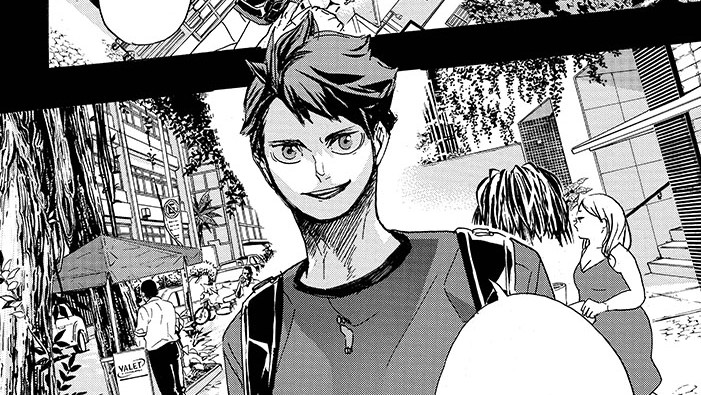
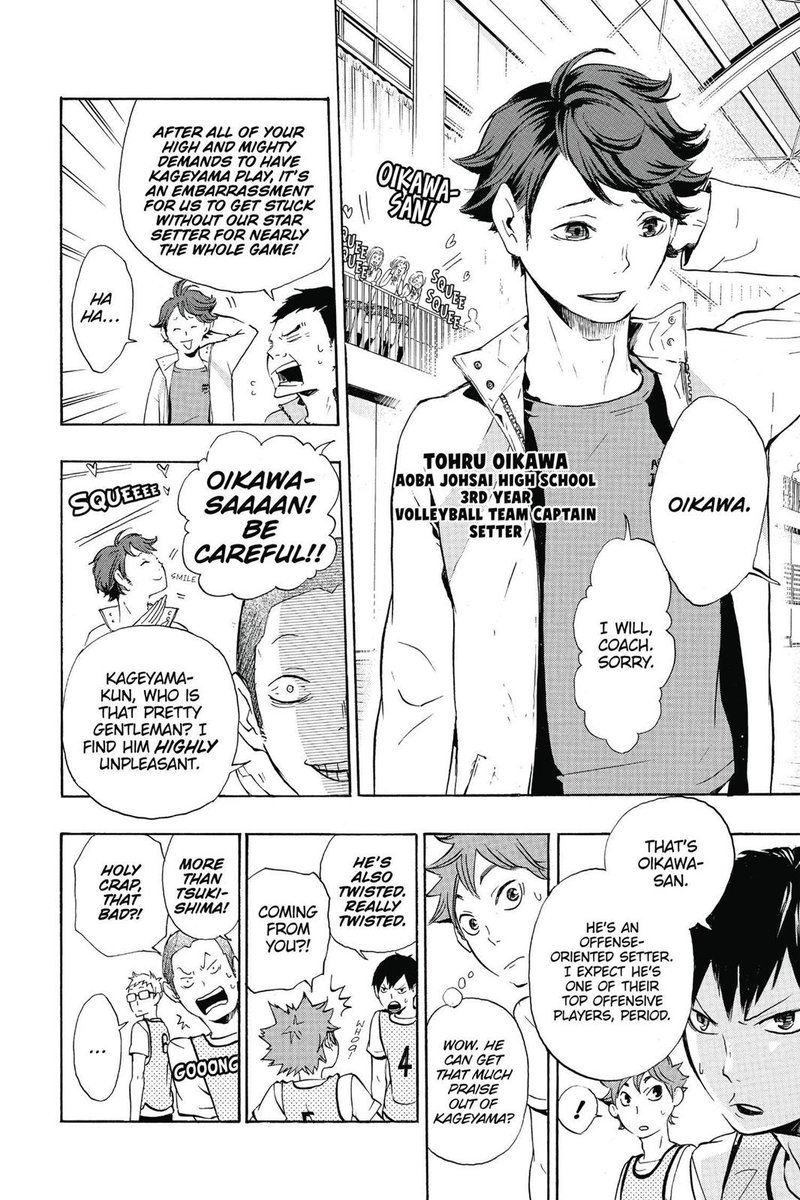

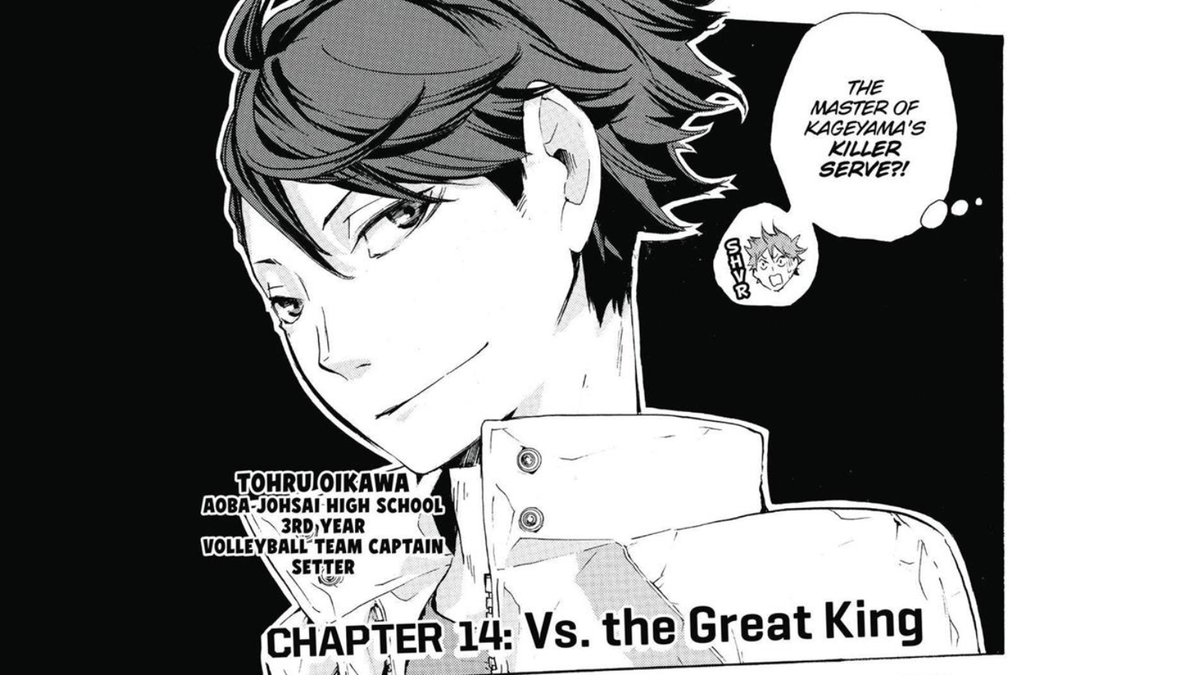

!["he& #39;s always clowning around, but there was a time when he didn& #39;t smile."these were the words iwaizumi used to describe the [presumably] darkest point of oikawa& #39;s life. no matter how determined and skilled was, he simply couldn& #39;t compare to players who seemed to be "prodigies". "he& #39;s always clowning around, but there was a time when he didn& #39;t smile."these were the words iwaizumi used to describe the [presumably] darkest point of oikawa& #39;s life. no matter how determined and skilled was, he simply couldn& #39;t compare to players who seemed to be "prodigies".](https://pbs.twimg.com/media/EdXnIBIU8AE8a2J.jpg)
!["he& #39;s always clowning around, but there was a time when he didn& #39;t smile."these were the words iwaizumi used to describe the [presumably] darkest point of oikawa& #39;s life. no matter how determined and skilled was, he simply couldn& #39;t compare to players who seemed to be "prodigies". "he& #39;s always clowning around, but there was a time when he didn& #39;t smile."these were the words iwaizumi used to describe the [presumably] darkest point of oikawa& #39;s life. no matter how determined and skilled was, he simply couldn& #39;t compare to players who seemed to be "prodigies".](https://pbs.twimg.com/media/EdXnJJGU0AA8osp.jpg)


